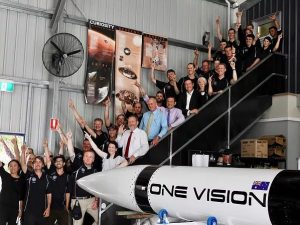Efficient data collaboration leads to getting deals done

Due diligence plays a big part in the decision-making process for raising capital. For most startups, the challenge lies in finding a secure and efficient way to accomplish due diligence with potential investors. An adequate view of a company’s business will empower investors to find the right valuation or investment strategy.
The art of the deal

Team Bambu (grabbed from their site)
“Raising money is all about telling your story, and it is also about time,” shares Ned Phillips, Founder & CEO of Bambu, a B2B software startup providing white label saving and investment API’s. He shares that startups and investors have to be both thorough and efficient in conducting due diligence.
“It takes time for both the company, the founders, and the investors to process – there are meetings, pitch decks, and thorough due diligence,” Phillips says. “In our process of discussing the business, investors want to go through all the details about contracts, pipelined accounts, and forecasts.”
Bambu has raised three rounds of funding so far, totaling US$3.7 million. The company is now in the middle of raising a US$10 million Series B round. At this level, Phillips says investors like to focus on achieving scale.
Bambu previously utilised DatasiteOne by Merrill Corporation and is again using the platform in its ongoing investment talks. DatasiteOne is a SaaS data room application purpose-built for due diligence, and offers web-based and platform-agnostic access to data and collaboration.
Bambu was first introduced to DatasiteOne during its earlier days of fundraising. “One of our investors suggested to use DatasiteOne – they had used it in doing due diligence for their other investments, and said we should consider using it, too,” notes Phillips.
He lauds the ease-of-use of the system as a comprehensive solution for data sharing and due diligence. “The system offers a high level of efficiency. You can track which documents investors are seeing and interacting with. The layout, design, and UI are very efficient. The investors’ feedback was that it was very easy to use.”
This is in stark contrast to the old way of doing things. Phillips explains: “I previously did some investing before, and the most common way of sharing data was through solutions like Dropbox. I also know some investors who have done due diligence through email, spreadsheets, and documents – not very efficient. While these can be amazing tools, due diligence was not the sole purpose of applications. It was tough, for example, when an investor requests specific documents – it can be difficult to keep track.”
The biggest benefit is how DatasiteOne is purpose-built for data sharing, analysis and due diligence. “It is significantly easier for investors to analyse companies.”
Giving startups a confidence boost

Gilmour Space Team (grabbed from their site)
Such ease-of-use gives startups a boost of confidence during the deal-making process. This is the case with Australia-based Gilmour Space Technologies, an innovative small rocket launch provider based in Queensland and Singapore.
According to Michelle Gilmour, Co-Founder and Director of Communications at Gilmour Space, the company needed to showcase to potential investors the richness of its research and data. “A lot of our success came from demonstrating our capability, which won people over from overseas and back home – including two ex-NASA executives to our advisory board.”
In 2017, the company raised its Series A funding round amounting to A$5 million (US$3.546 million). It is now working on enhancing its capabilities to launch small satellites into Low Earth Orbits (LEO). “Gilmour Space has aspirations to go beyond LEO, and we’re also developing propulsion systems for deep space exploration,” Gilmour adds.
In raising Series B (A$19 million or US$13.7 million), Gilmour Space kept its focus on R&D for its space tech business, while providing potential investors the adequate capability to conduct due diligence.
Through DatasiteOne, Gilmour Space and its investors could utilise visuals, analytics, activity-tracking, and discovery in an easy-to-use web interface. “One of our main considerations is security, and we saw a lot of benefit in engaging Merrill Corporation as professionals who are experts in this field,” says Gilmour.
In previous partnerships, Gilmour Space had been mostly using separate communication and file-sharing platforms, which ended up in being laborious.
“We needed to share data with everyone involved in a safe, secure, and easy-to-use platform,” notes Belinda Simpson, who is responsible for managing due diligence for investor funding at Gilmour Space. “DatasiteOne is straightforward and intuitive. Our investors liked the fact that we focused on security and data protection – and that resulted in a good impression.”
The takeaway
Both fintech and space tech are areas that have a bright future in Southeast Asia and beyond. Fintechs like Bambu empower businesses and individuals with innovative ways to access financial services. Meanwhile, space tech companies like Gilmour Space will help open up a new frontier and market in space.
In both cases, having timely access to capital can be an enabler for success. Efficient due diligence results in effective dealmaking, which helps maximise a startup’s potential for growth.
For more information on Merrill DatasiteOne, visit https://www.merrillcorp.com/us/en/datasiteone.html
image credit: 123rf.com | ID 54156180
The post What does it take to raise Series B funding? Learn from Gilmour Space and Bambu appeared first on e27.